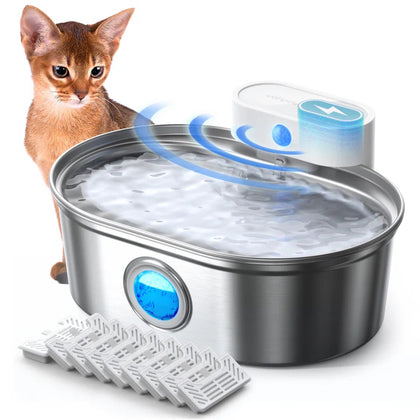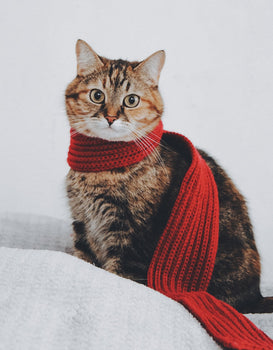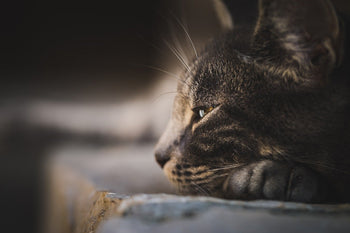Inappropriate urination is a common problem among cat owners. It can be frustrating and confusing when a cat suddenly decides to pee outside of their litter box, especially when it happens on their owner. While it may seem like a personal attack, there are several reasons why a cat may exhibit this behavior.
Understanding cat behavior is crucial in addressing this issue. Cats are known for their cleanliness and prefer to have a clean litter box. However, there are several factors that may cause a cat to avoid their litter box. These factors may include medical conditions, stress, anxiety, and territorial issues. It is vital to identify the root cause of the problem to address it effectively.
Possible reasons for inappropriate urination may vary from cat to cat. It is essential to take a closer look at their behavior and environment to identify the underlying issue. Once the cause is determined, cat owners can take the necessary steps to address the issue and prevent it from happening again.
Why Did My Cat Pee on Me?

Understanding Cat Behavior
Cats have a complex and unique behavior that can sometimes be confusing to their owners. Understanding why cats behave the way they do can help owners prevent unwanted behaviors, such as urinating outside of the litter box.
Territorial Nature and Marking Behaviors
Cats are territorial animals, and they use urine to mark their territory. They have scent glands in their paws, cheeks, and tail, which they use to leave their scent on objects and surfaces. When a cat urinates on a person, it could be a sign that the cat is claiming the person as their own territory.
Cats may also urinate outside of the litter box if they feel their territory is being threatened. This could be due to the presence of another animal in the house, a change in routine, or a new person in the household. In these cases, it's important to identify the source of the stress and address it to prevent further marking behaviors.
Communication Through Urination
Urination is not only a way for cats to mark their territory, but it can also be a form of communication. Cats have different types of urine that they use to communicate different messages. For example, cats may use urine to signal their availability for mating, or to communicate their social status to other cats in the area.
It's important for cat owners to understand the different types of urination behaviors and what they mean. If a cat is urinating outside of the litter box, it could be a sign of a medical issue or a behavioral problem. Consulting with a veterinarian or a cat behaviorist can help owners identify the underlying cause and address the issue effectively.
Possible Reasons for Inappropriate Urination
Inappropriate urination is a common problem among cat owners. Cats may urinate outside of their litter box for various reasons, such as medical issues, litter box problems, or behavioral issues.
Medical Issues
Medical issues can cause a cat to urinate inappropriately. Some common medical issues include urinary tract infections, bladder stones, and kidney disease. These conditions can cause pain, discomfort, and frequent urination, which may lead to inappropriate urination.
If a cat is urinating outside of its litter box, it is important to take them to a veterinarian for a check-up. The veterinarian may perform tests to determine if the cat has a medical issue that needs to be treated.
Litter Box Problems
Litter box problems are another reason why cats may urinate outside of their litter box. Cats are clean animals and prefer a clean litter box. If the litter box is dirty or not cleaned frequently, the cat may avoid using it.
Other litter box problems include the type of litter, the location of the litter box, or the size of the litter box. Cats may also avoid using a litter box if they had a bad experience with it, such as being startled while using it.
Behavioral Issues
Behavioral issues can also cause inappropriate urination in cats. Stress, anxiety, and changes in the cat's environment can all contribute to inappropriate urination. For example, if a new pet or person is introduced into the home, the cat may feel threatened and urinate outside of its litter box.
It is important to identify the cause of the cat's stress and address it to prevent inappropriate urination. Providing a safe and comfortable environment for the cat can help reduce stress and prevent inappropriate urination.
Related Posts:
How to Address the Issue
If your cat has peed on you, it is important to address the issue promptly. Here are some prevention and intervention strategies, the importance of veterinary consultation, and creating a comfortable environment to help you address the issue.
Prevention and Intervention Strategies
Prevention is always better than cure. You can prevent your cat from peeing on you by providing a clean litter box, placing it in a quiet and accessible area, and scooping it daily. You can also provide your cat with plenty of playtime, exercise, and mental stimulation to reduce stress and anxiety.
If your cat has already peed on you, it is important to intervene immediately. You can gently remove your cat from your lap and place them in their litter box. Avoid scolding or punishing your cat, as this can increase their stress and anxiety and make the problem worse.
Veterinary Consultation Importance
If your cat's peeing behavior persists, it is important to consult with a veterinarian. Your cat may have an underlying medical condition that needs to be addressed. Your veterinarian can perform a physical exam, run diagnostic tests, and provide you with treatment options.
Creating a Comfortable Environment
Cats are sensitive creatures and require a comfortable environment to thrive. You can create a comfortable environment for your cat by providing them with a cozy bed, plenty of toys, and scratching posts. You can also provide your cat with a cat fountain to encourage hydration and reduce stress.
By following these prevention and intervention strategies, consulting with a veterinarian, and creating a comfortable environment, you can address the issue of your cat peeing on you and improve your cat's overall well-being.
Related Posts:
Conclusion
In conclusion, there are several reasons why a cat might pee on its owner. It could be due to a medical issue, such as a urinary tract infection or bladder stones. It could also be due to stress or anxiety, which can be caused by changes in the cat's environment or routine.
Additionally, cats are very particular about their litter boxes and may refuse to use them if they are not clean or if the litter is not to their liking. Finally, some cats may mark their territory by urinating on their owner or other objects.
If a cat is peeing on its owner, it is important to rule out any underlying medical issues and to ensure that the litter box is clean and accessible. If the issue persists, it may be helpful to consult with a veterinarian or animal behaviorist to address any potential stress or anxiety in the cat's environment.
Frequently Asked Questions
What causes a cat to urinate on their owner?
Cats may urinate on their owners due to various reasons, including medical conditions, behavioral issues, and stress. Some cats may also urinate on their owners as a form of marking their territory or as a way of showing affection. It is essential to identify the underlying cause to address the issue effectively.
Could behavioral issues lead to a cat peeing on human companions?
Yes, behavioral issues can lead to a cat peeing on its human companions. Some common behavioral issues that may cause inappropriate urination include anxiety, territorial aggression, and litter box aversion. It is essential to consult with a veterinarian or a feline behaviorist to determine the cause and develop a suitable treatment plan.
How does feline health affect inappropriate urination?
Feline health can play a significant role in inappropriate urination. Medical conditions such as urinary tract infections, kidney disease, and diabetes can cause a cat to urinate outside the litter box. It is crucial to schedule regular veterinary check-ups and address any underlying medical conditions promptly.
What role does feline stress play in cats peeing on people?
Feline stress can cause a cat to urinate outside the litter box, including on their human companions. Stressful situations such as changes in the environment, introduction of new pets, or lack of mental stimulation can trigger inappropriate urination. Providing a stress-free environment and engaging in interactive play can help reduce stress and prevent inappropriate urination.
How can I address my cat peeing on me unexpectedly?
The first step in addressing a cat peeing on their owner is to identify the underlying cause. If it is a medical issue, seek veterinary care immediately. If it is a behavioral issue, consult with a veterinarian or a feline behaviorist to develop a suitable treatment plan. It is also important to provide a clean litter box, offer mental stimulation, and engage in interactive play to reduce stress.
What should I consider if my cat starts peeing on me after a medical procedure?
If your cat starts peeing on you after a medical procedure, it is essential to consult with your veterinarian immediately. In some cases, cats may experience pain or discomfort after a procedure, leading to inappropriate urination. Your veterinarian may recommend pain management or other treatments to address the issue.

















